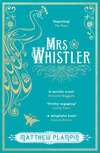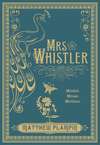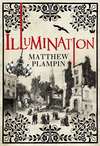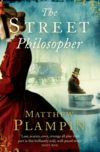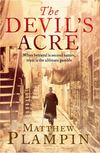Kitabı oku: «Mrs Whistler», sayfa 3

July 1877
The force of Maud’s anger caught her unawares. At first, lost for words, she went stamping from room to room, taking it out on the house – on Jimmy’s precise and oh-so-original decorations. She knocked pictures askew and kicked up rugs, she heaved wickerwork armchairs out of their places, she shoved down a Japanese screen. He followed behind, correcting what he could, making vague attempts at placation, as if even then the greater part of his mind was elsewhere. After a few minutes of this they reached the drawing room.
Maud turned abruptly to face him. ‘How could it have got so bad? Why d’you open the bloody door to them? Don’t you know anything?’
Jimmy didn’t answer. He’d lit a cigarette and was leaning back on his right foot, stroking his moustache thoughtfully, angling himself towards the two tall windows. This was a familiar ploy of his when he wished to stage a retreat. The artist is unexpectedly inspired, said the pose. Shhh! Don’t disturb!
Maud wasn’t having it, though, not today. There was a new piece of porcelain by the divan, a squat, blue-and-white vase, shaped like an oversized onion and patterned with oriental flowers. She went over to it and hooked a toe under one side. The thing was easily unseated, but rather heavier than she’d anticipated; too late she realised that it was half filled with water. It rolled away in a wobbling semicircle onto the rectangle of yellow matting laid in the middle of the room, disgorging its contents in irregular spurts. A white lily appeared, coasting off towards the skirting board, and then a pair of plump, back-flipping goldfish.
This got Jimmy’s attention at least. The artistic pose was dropped. Maud stood by, flushed with annoyance and the faintest touch of guilt, as he rushed across the room, righted the vase and attempted to save the fish. The cigarette fell from his lips and hissed out in the spillage; his eyeglass swung at the end of its cord, flashing in the dusty sunlight. He was not, in truth, very well suited to tasks such as this. The fish were sluggish enough but he could only catch hold of one of them; the other squirmed off beneath the divan, beyond his capacity for rescue.
‘You shouldn’t,’ Maud told him. ‘Keep them in a china bowl, I mean. Down in the dark. How would you like it?’
Jimmy shook water from his fingers. ‘Maudie,’ he said, ‘you’ve missed so much.’
Maud crossed her arms; she looked around for something else to upset. This hardly needed saying. Six weeks earlier, as she’d taken her leave, he’d been claiming that victory was imminent – the Grosvenor had opened to fanfares and he was poised to recover, in a single swoop, every last penny of their missing fortunes. And yet he’d greeted her today not with news of guineas, of sales and fresh commissions, but of bailiffs. The very word knotted her insides. Jimmy, though, had said it matter-of-factly. There was no secretiveness in him; no particular shame either. Two men, he’d reported, had called early yesterday morning, appointed by the Sheriff of Middlesex. He couldn’t recall who’d sent them; there were papers in the hall. Although perfectly polite, and better bred than one might imagine, they’d departed only after he’d produced ten pounds in cash, a broken pocket watch and some opal earrings that had belonged to Maud’s mother.
‘You said we’d be set right. You bloody promised it, Jimmy. You said we’d be able to talk things through. Don’t you remember? Move the child a bit closer. Find a woman in Battersea, or – or—’
The anger sputtered; Maud’s thoughts were straying in an unwelcome direction. The absence. The coldness in the crook of her arm. The sense of something very close at hand, something vitally and profoundly hers, that wasn’t being seen to. She’d been forewarned; she’d considered herself prepared. And it had beaten her to the floor. Five more days she’d remained at Edie’s after the foster mother had left – until her milk had ebbed almost to nothing, and the worst of the bleeding had seemed to be over. We’ll get you all cried out, Edie had said. Maud knew now, there in the drawing room at Lindsey Row, that five days hadn’t been nearly long enough. Jimmy would be sympathetic, of course he would. But only up to a point. They had an agreement – and with bailiffs at the door, any chance of amending it was gone.
‘We will be set right,’ Jimmy said, rising to his feet. ‘You’ll see, Maudie. I’ll buy you those earrings back.’
He misses it, Maud thought. He misses it by a bloody mile. Immediately her anger was restored to its full, scalding strength. She found that she was glaring at his hair, so carefully oiled and arranged; she saw herself grasping that single white lock and ripping it out at the root. The urge was resisted, just about. Instead she began telling him exactly what he was, drawing on a reserve of the ripest London slurs; and even after all the years he’d lived in the city, and the many battles they’d fought, a couple of these left him wrinkling his nose in bafflement.
The list ran on. Jimmy weathered it with the air of a man marking time, swivelling very slowly on his heel – then coming to a halt as he spied something outside. The drawing room was on the first floor, providing a broad view of the slow, brown Thames and the road that ran along its bank. Suddenly deaf to Maud’s invective, he went over to the right-hand window, dragged up the sash and leant out a few inches further than was safe, shouting a name with undisguised relief.
Maud fell into a glowering silence. She’d missed the name and could make out little of what was being said now, but this was clearly a friend. She edged sideways to peer out of the other window. All she saw was hats, a grey topper and a curious affair in rose felt, heading underneath the sill towards their front door. It was not one person but a pair – a couple. And Jimmy had invited them up. He ducked back in, strolled to a sideboard and began rolling another cigarette.
‘Stay there,’ he said lightly. ‘Don’t worry – they’re really not the sort to object. They’re rather keen to meet you, in fact.’
Any control Maud might have had was gone. She looked to the door, sorely tempted to ignore Jimmy and withdraw anyway. Fatigue was fast overwhelming her anger. Her bosom ached – Edie had laced the corset very forgivingly, yet still she seemed to strain against it – and further down, around the base of her belly, a sharper pain was stirring. She could go upstairs. Strip to her shift. Bury herself in their bed. But there were footfalls out on the landing – shapes blocking the line of light beneath the door. It was too late.
The callers made an assured entrance, striding in across the yellow matting. Maud’s initial impression was of height and handsomeness, and well-made, slightly unusual clothes. The gentleman trailed cigarette smoke; his companion wore a dark blue jacket that accentuated how very slender and pale she was.
‘The Harmony in Amber and Black,’ declared the gentleman. ‘The Arrangement in Brown. By Jove, Rosie, she is before us. Before us completely.’
They advanced towards Maud, regarding her with the close appreciation you might give a statue or a particularly interesting piece of furniture. Both were smiling. The drawing room felt dingier, smaller; Maud became aware of the rotten-egg smell of summer mud, oozing in through the open window.
‘I mean, it is uncanny,’ the gentleman continued, glancing over at Jimmy. He had a fine voice, warm and deep with the touch of an accent – Spanish, Maud thought. ‘Your portraits, dear fellow – they are more than likenesses. So much more. There’s a core to them, I’d say, a true artistic understanding. They get to the bottom of the matter. The essence.’
Maud looked at Jimmy. He could be prickly with praise; she’d heard him dismiss it, dismiss it with real violence, if he thought it misguided or insensible to his aims. That afternoon, however, he simply nodded in acknowledgement, then screwed in the eyeglass and smiled – the kind of wide, unguarded grin you’d only see in the company of those he genuinely liked. Two cigarettes had been rolled: he lit both, passing one to this new arrival. The Spanish gentleman sucked a last lungful from the butt already lodged between his fingers, flicked it deftly out through the window and accepted the next with a murmur of thanks.
‘Miss Corder,’ said Jimmy, ‘may I be so frightfully unnecessary as to introduce Miss Maud Franklin.’ He puffed on his cigarette, making a back-and-forth gesture. ‘Miss Franklin – Miss Rosa Corder.’
A hand was extended, in a glove the same pinkish colour as the felt hat. ‘Charmed, Miss Franklin, truly.’
Miss Corder’s voice was difficult to get the measure of. Respectable, if not quite quality; confident but also unassuming, somehow; wholly in earnest, yet tinted with laughter. Maud had been eyeing her cagily during Jimmy’s introduction, thinking that she might well be a model. A substitute. She certainly had the figure for it. Now, though, such fears could be disregarded. Maud had never met a model who spoke like this.
‘We know you, of course, from the Grosvenor,’ Miss Corder explained. ‘The pictures were so very beautiful. Do forgive us if we stare a little.’
Normally Maud would respond to a comment like this with self-effacement – perhaps something like, ‘Really I just stood there, that’s all’ – which would lead to discussion of her stamina, her patience and fortitude and so on, in the face of Jimmy’s famously gruelling requirements. That afternoon in the drawing room, however, she managed only a non-committal mumble. She was painfully conscious of their gaze upon her; of her swollen, ill-clad, exhausted body; of her complexion, drawn by stress and sorrow. She took Miss Corder’s offered hand. There was a strength in the long fingers that reminded her oddly of Jimmy’s.
‘I am glad you are back safely,’ Miss Corder added, more quietly. ‘I hope we will be friends.’
I’m glad you are back safely. Maud met her eye. She saw nothing there but good intentions – a slightly insistent kindliness. This strange pair obviously knew far more about things at Lindsey Row than Jimmy was supposed to have revealed to anyone. They’d been primed, Maud realised, and this amiable little scene arranged in advance. They knew what their arrival had interrupted. They were there specifically to deliver Jimmy from the trouble that was sure to attend upon her return, without their daughter, to news of bailiffs. This was another of his favourite stratagems – to seek refuge in company, drowning any difficulty in the bottomless pool of his acquaintance.
‘And this creature here, Maudie—’ Jimmy paused for effect, twisting the left point of his moustache, ‘is the splendid and most illustrious Owl.’
The Spanish gentleman made no comment on this peculiar introduction. He gave a shallow bow, smoke winding from his nostrils. ‘May I simply say, Miss Franklin, that in your presence one feels most clearly the intense and singular charge of inspiration. The Muse’s aura hangs heavy in the air. You are part of an exceptional group, Miss – an eternal being akin to Rembrandt’s Hendrickje, or Leonardo’s Mona Lisa, or the Bourbon princesses of our great god Velázquez.’
Maud laughed, she couldn’t help it – a hard, sceptical snort. This Owl was definitely one of Jimmy’s people. Beyond that, though, he wasn’t easy to classify. His manner was too smooth for a poet or a painter; his looming, leonine person too neat, too well tended for the stage. He lacked the careless superiority of a man of leisure, and a couple of unconventional details in his dress – the spare cut of his dove-grey suit, that red ribbon pinned to his lapel like some kind of military decoration – seemed to disqualify him from the law or most branches of business. There was the foreign aspect as well, the hint of elsewhere – could he be a diplomat? A journalist? Maud honestly couldn’t tell.
Plainly thinking he’d slipped the hook, and enjoying himself immensely, Jimmy sauntered to the door and called downstairs for John. Maud’s hackles rose anew. This low little trick mustn’t be allowed to pass unchallenged.
‘Do you reside here in Chelsea, then, Mr Owl?’ Saying the name felt ridiculous, childish; she gave it a mocking emphasis. ‘Or did you just happen to be passing by?’
‘Putney,’ Owl replied pleasantly. He drew a card from his waistcoat pocket and presented it to her. ‘We often come this way when travelling to Miss Corder’s lodgings in the city. Rosie likes to walk beside the river.’
The card lay face down in Maud’s palm. She turned it over and read: Charles Augustus Howell, Esq., Chaldon House, Putney. There it was. ‘Owl’ would be a common pronunciation of this surname in London. It was a very English handle, though, for a rather unEnglish person. No profession was given, she noticed, and no house number or street either; the suggestion was of a squire in his manor. She considered what he’d told her. Their guests were a gentleman and his mistress, with her installed at his convenience in an apartment closer to town – an arrangement almost disappointing in its ordinariness.
John appeared in the doorway. He noted Owl’s presence with wary recognition. The servant obviously hadn’t let this couple in or shown them up, as might have been assumed. The Owl at least had been to Lindsey Row before and knew his way around. Maud’s brow furrowed – hadn’t the front door been locked? Did he have a key?
‘Sherry,’ said Jimmy, ‘and the last of the buckwheat cakes. In the studio, if you please.’
‘No sherry left.’
‘A bottle of the Muscadet, then.’
John shook his head.
‘The Scharzhofberger? Surely we still have some of that?’
The servant hesitated; he gave a quick nod and made to turn away. Remembering the onion-shaped vase, Maud bent down and gripped it by the lip. A muscle in her midriff contracted; the pain was so astonishing that she nearly cried out. For a second or two, through a lens of tears, she watched the remaining goldfish wriggle weakly in an inch of cloudy water. Then she straightened up, wiped her eyes on her sleeve and held the vase towards the doorway.
‘Put this poor thing in another bowl, would you?’ she said, keeping her voice steady. ‘Something glass. And fetch a broom. There’s a dead one under the divan.’
John took it readily enough. He didn’t always heed Maud, but wouldn’t risk a fuss in front of his master. Owl, meanwhile, was studying the floor, the boards and the soaked patch of matting, tracing the pattern of splashes with the tip of his cigarette. He went to the divan, dropped to a crouch and reached into the shadows beneath – standing again a moment later with the missing fish in his hand. The tiny body was quite motionless and furred with dust. Expertly, Owl placed a fingertip against it, where the orange flank met the silvery underbelly. He gave it the gentlest of prods; the frond-like tail beat about, and for a second a fin was raised upwards like a miniature sail.
‘Bon Dieu, it lives!’ cried Jimmy, with a short, piercing laugh. ‘A Lazarus, what! A Lazarus among goldfish!’
Maud blinked. How long had it been since she’d spilled the fish? Four minutes, five? How could it possibly still be alive? As she craned her neck to see, Owl tossed the fish across the room, towards the vase – a light-hearted lob somewhat at odds with the eerie tenderness of the revival. His aim was true, though; it landed in the water with a hard hollow plop.
‘There, John,’ he said. ‘Never say that I have no gold for you.’
*
A display had been arranged in the studio, a dozen or so of the finest paintings currently in Jim’s hands, fixed onto easels or propped against the walls. There were his night-time views of the river, the Nocturnes, rendered in bands of luminous, misty blue; the Cremorne Gardens or somewhere like it, where half-formed figures drifted in golden fog; a couple of unclaimed, unfinished portraits; and Maud herself, Maud time and again, in an assortment of costumes and attitudes. Over the years Jimmy had painted her in the flowing tea-gowns of the artistic rich, peasant skirts and bodices, and bold modern garments that had fitted around her body like a sleeve.
Maud stayed close to the studio door. The muscle in her side still throbbed something awful. She rubbed at it, and was briefly taken aback by the amount of flesh her corset contained. She glanced at the Owl and his consort. They’d surely be making the comparison now, if they hadn’t already up in the drawing room. How could they not, with these paintings arrayed in front of them? They’d be lamenting the speed of Maud’s decline, and doubting her ability to recover; and wondering, perhaps, what Jimmy planned to do about it. Humiliation began to enfold her, but she clenched her teeth and forced it away. She wouldn’t be shamed by what had happened. She just wouldn’t. Inwardly, she dared these guests to make a remark. To raise an eyebrow. Anything.
Miss Corder had gone to the pictures, however, lost in veneration. She’d approached a full-length figure – Maud in white and black, her hands set on her hips, as modishly elegant as a Paris fashion plate. Owl, meanwhile, had taken up a position over by the French windows. After declaring Jimmy’s paintings beyond approbation, the great art of the age, he’d produced a pencil and a notebook and begun to write. It was a conspicuously businesslike response; he appeared to be compiling an inventory. Maud had been hoping that he might actually be a customer – that Jimmy had got the canvases out so that he could make his selection and furnish them with a few dozen much-needed guineas. She saw now that this couldn’t be the case. Customers did not make lists; if Mr Howell had dealings in the art trade, it was plainly on the selling side. His attendance at Lindsey Row was no accident, as she’d realised upstairs, but there was more to it than simply providing a distraction. Some form of arrangement was being set in place.
‘Is this all of them?’
‘Well, you know …’ Jimmy was in the middle of the room, smoking his cigarette. ‘There are a couple elsewhere in the house. Things being finished off. And there’s the Grosvenor, of course. Eight more canvases.’
Maud surveyed the studio again, and this time noticed a couple of absences. Most conspicuous was the portrait of Jimmy’s mother. He was especially attached to this picture – and somewhat more attentive to its well-being, she’d heard others imply, than he was to that of its model. Maud hadn’t seen it in the drawing room either, or the parlour, or any of the downstairs corridors. Jimmy had moved it well out of the way.
‘The Grosvenor paintings are yours?’
‘All the important ones. We still have an expectation of sales, a strong expectation. The exhibition has three weeks left to run. Stands to reason that the big buyers will wait until the end.’
Owl was nodding sagely. ‘That can be a pattern at shows of this kind.’
This sounded unlikely to Maud. She said nothing, though, as Jimmy was now talking with some candour about how tough things were becoming at Lindsey Row – the outstanding bills, the mounting legal threats, the bailiffs. It was a confession of sorts, a statement of failure, and his spirits dipped accordingly.
‘It’s difficult, old man,’ he concluded, ‘damned difficult. Each and every path seems to promise only fresh disaster.’
Maud felt the beginnings of pity. He was shaken. He needed her, in his way – his ally in penury. She hardened her heart, though, directing her eyes firmly towards the uneven herringbone floor. He deserved her anger. It shouldn’t be that easy.
Owl stepped in. ‘Well, there’s a great deal we can do here. These works of yours mayn’t have buyers, Jimmy, not yet, but they certainly have value. In abundance. The means are before us to generate nothing less than a fortune. From the paintings, and the copperplates as well.’ For all the ambitiousness of his words, his voice was level. Reasonable. ‘As for the bailiffs, what can I say? It shan’t happen a second time. I can promise you that. We shall build a barrier around you, my dear chap – a barrier of gold two miles high, and every one of these accursed philistines will be shut out for good.’
Maud’s doubt must have been showing, for Jimmy approached her, his composure regained, to offer some reassurance. ‘The Owl, Maudie,’ he said, ‘has worked deals that mystify the mind. That send the soul soaring.’
A cigarette was burning between his fingers. Maud plucked it out, deciding right then that she was ready to smoke again, and little caring what these guests might think about it. Jimmy’s tobacco was fine, smooth and strong; one puff set her fingertips tingling. She tilted back her head to exhale, holding his eye. ‘Like what?’
Jimmy turned to Owl. ‘Rossetti’s painting, the last one you handled,’ he asked. ‘That woman, you know, with those monstrous shoulders. How much did you get? It was all anyone talked of for weeks.’
‘A gentleman of my acquaintance,’ replied Owl, marvellously offhand, ‘paid us two thousand guineas.’
Maud coughed on the cigarette, soreness flaring along her side. That was the same sum Jimmy had asked for the entire Peacock Room, as everybody had taken to calling it. The sum he’d been denied. And this fellow was getting it for a single painting. Hope returned, despite her determined wariness; it was breaking through her like a lantern’s light. Everything could change. Their debts could be wiped clean away. Jimmy could be made wealthy. They could travel. Their trip to Italy, to Venice, so long postponed now that the idea had nearly lost all meaning, could be made at last. And dear God, they could talk of Ione. Of their daughter. Maud saw her ruddy hands, bunching the midwife’s shawl, and those glassy blue eyes; she felt the press of the child’s feet against her thigh. She couldn’t ever live with them. This Maud accepted. But if there was to be money, a second property could surely be rented nearby – in Chelsea even. A nurse could be employed. Or the foster family moved in. It had to be possible.
‘A fair figure,’ said Miss Corder, from across the studio. ‘Very fair. Why shouldn’t he pay that? What is he, a banker? A merchant? He should have paid more.’
‘And I could assuredly have got more,’ Owl told her, ‘had I been given another week. No question of it. But you know how damned impatient Gabriel can be.’ He removed his top hat, revealing a head of glossy auburn hair as oiled as Jimmy’s. ‘Where do things stand with the large picture over yonder? The Three Girls?’
This painting had been given only a secondary placing in Jimmy’s little display, out of the studio’s best light. It featured a simple, Japanese-style composition: three female nudes arranged around a potted cherry blossom, its pink flowers scattered against a backdrop of pale grey screens. One girl stood to the right, holding a parasol and clad in a robe so diaphanous it barely existed at all; another crouched beside the plant as if tending to it, her hair tied beneath a red and silver scarf; and there, at the painting’s left edge, was Maud Franklin, rather younger and slimmer and completely stark naked. In the altogether. This had been done right at the start, around the time of Maud’s eighteenth birthday, before anything particular had happened between Jimmy and her. She’d agreed readily enough. The art had required it, she’d reasoned; such was the bargain a model made with her modesty. Still, despite this firm self-instruction, she’d been a mite startled to discover that she wasn’t going to be alone in this picture, the two other nudes having already been laid in on an earlier occasion.
‘Three girls was the scheme agreed upon,’ had been Jimmy’s dry explanation. ‘Three different girls. At the patron’s specific request.’
Parts of it were sketchy, but Maud herself was pretty unmistakable – shown from the side, leaning gently towards the centre of the scene. It had been a hellish pose to hold, even by Jimmy’s standards. You couldn’t tell, though; the figure had a grace to it, and a sleekness, that now seemed frankly incredible. Yet her earlier discomfort did not return. As their guests looked at this painting, she felt only a sickly excitement at the sums that might be proposing themselves to Owl.
‘It’s Leyland’s,’ Jimmy replied. ‘As I suspect you are aware.’
‘And he still wants it?’
‘You know his views on receiving that which he has paid for. How very dogged he can be.’
‘But you don’t think simply to send it to him?’
‘My dear Owl, it is unfinished. Can you not see that? It certainly isn’t ready to be subjected to any form of general inspection. The same goes for the rest of Leyland’s works I still have here. All those blasted portraits, for instance.’
Owl looked about him. ‘And where might they be?’
Commissioned back when Jimmy had been counted among the family’s most intimate friends, the Leyland portraits had provided Maud with her ticket through his door. He usually kept the one of the wife out for show, being rather proud of it, she suspected; but today, along with the rest of them, it was nowhere to be seen.
‘Work upon all Leyland faces has halted, for the time being,’ Jimmy said, ‘and an alternative berth found for the canvases. Being as they are so big, you understand. There just isn’t room.’ He grew subtly mischievous, and gave a sigh of mock-regret. ‘The truth of it, mon vieux, is that having our British businessman in here, all long-limbed and morose – befrilled, you know, with sunken eye, lurking off in the shadows – was proving far too dire a distraction, so I bundled him into the cellar. The painted version, that is. Not the original.’
The Owl and Miss Corder laughed. Jimmy’s forgotten cigarette was almost burned out, the ember scorching Maud’s knuckles; she dropped it with a wince into a grubby saucer. When she’d left for Edie’s back in early May, the Leyland matter had been all but dead. The Peacock Room had been finished with at long last. But she knew their tone. Behind these jokes lay something new.
‘What’s happened?’
The studio door opened to admit John, bearing a tray with his standard air of mild irritability. Upon it was a plate of Jimmy’s American buckwheat cakes, a half-empty bottle of white wine and four smudged glasses. After setting the tray on the edge of the painting table, John stood back and looked to his master, expecting the usual complaint or additional instruction.
‘Jimmy,’ Maud said. ‘What’s happened? What’ve you done?’
Jimmy went to the wine bottle and picked it up. He sighed again, this time at her persistence. ‘Nothing, Maudie. I swear.’
*
Maud went upstairs barely a minute after the Owl and Miss Corder had taken their leave. She disrobed and dropped into bed, burrowing gratefully amid the cool sheets, and was filled with the sense, oddly welcome, of laying herself beneath the earth; of dragging the turf over her pounding head, never to rise again. For several days she stayed there, weighted down by exhaustion and a feeling she came slowly to recognise as loneliness. Her body and her mind had been refashioned to receive a child. To care for a child. And it was not there.
The moment of parting was played out a thousand times, the memories pored over and picked through in the hope that some new detail or sensation might be uncovered. Maud had been sitting in a scuffed, high-backed armchair, a mainstay of Edie’s parlour. Ione had been dozing in her lap; her own eyelids had started to flutter as well. She’d heard the front door, and lowered voices in the hall, but hadn’t thought anything of it. Edie had come in and bade her stand. Then she’d leaned forward, lifting away the child as if relieving Maud of an encumbrance.
‘Pass her here,’ she’d said.
‘It’s all right,’ Maud had replied, slightly perplexed, in a tone of good-humoured protest, ‘I can manage. Why, she’s light as a—’
Her sister had already been turning away, though, going back to the door, thinking it best just to get it done – to tear off the bandage with a sudden, unexpected stroke. It was only when the front door closed again, in fact, that Maud had fully appreciated what was taking place. She’d known that the foster mother was due, of course she had, but had assumed this would be after teatime. Later on. The next morning. She’d thought of pursuit. A few groggy, wandering steps had shown her that this was futile. So she went instead to the window, hoping to catch sight of them – to call out and have them stop for a proper farewell. The parlour was to the rear of Edie’s small terraced house. All that she’d been able to see was a bare yard. Ione was gone. Her awareness of this had seemed to gather at the top of her chest, pressing in on her until she’d been unable to breathe; until her collarbone had felt like it was about to crack in two. She’d made a sound, a kind of anguished yelp, and dropped back into the armchair. Alone.
With Maud’s grief came yet more anger – directed at herself, for her feebleness and her idiocy, but also pretty squarely at Jimmy. He kept his distance, sleeping on the studio chaise longue, no doubt thinking this considerate; and was preoccupied, as always, with his own business. Mrs Cossins, the cook at Lindsey Row, brought up her food and dealt rather grudgingly with her laundry. Once a day, twice at most, Jimmy would appear to ask how she was faring. His bed was huge and heavy, with a frame of dark lacquered wood; buried within it, she would glare out at him, refusing to speak. The words built up, acquiring a terrible pressure, as if they were soon going to explode from her and force a proper confrontation. How can you care so bloody little? she’d demand. How can you want things to be this way?
